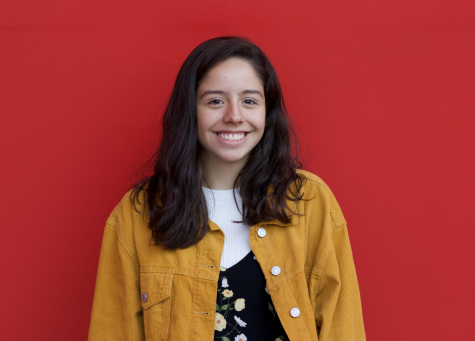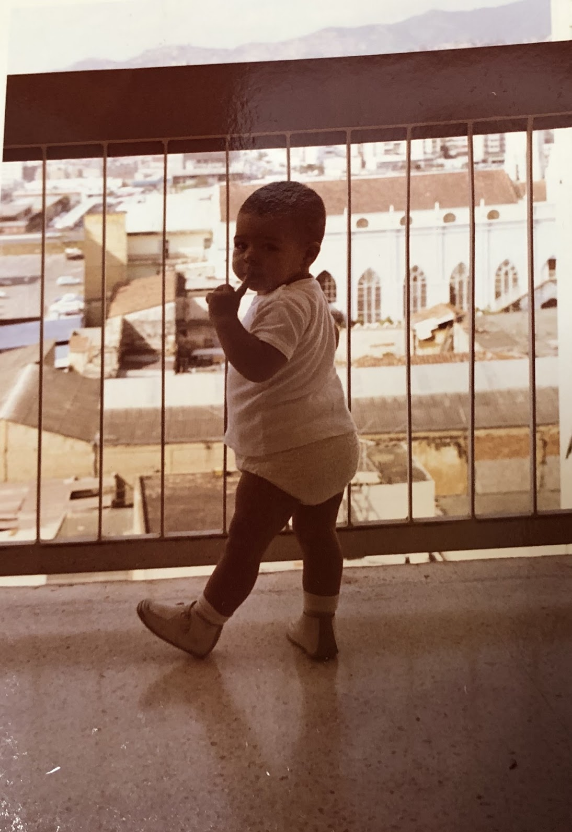Venezuela in the Eyes of a Venezuelan
Growing up, my mother would tell me stories about her childhood in Caracas. The sun was always shining, she could have an ice cream on a beach ten minutes away from her house, and she was able to run around with her friends in the streets without a care in the world. Now, looking back, it seems unreal that the capital of Venezuela could ever have been like that. Instead of licking ice cream on a beach, students in Venezuela are running for their lives while being chased by soldiers throwing smoke grenades.
In 2018, the number of years my mom spent living outside of Venezuela equaled the number of years she spent living in the country. When she told my siblings and me this, she looked down and wiped a small tear from her eyes, before quickly composing herself again. Never having lived in Venezuela, I can’t imagine what my mom is going through seeing the country she was born and raised in being torn to shreds every day.
I decided to sit down and ask my mother about the crisis in Venezuela to understand how someone who grew up in that country is coping with the grim reality there, and she took me through everything someone who didn’t experience that personally would want to know.
My mother studied at great schools with very diverse students. There was a large international population in Caracas at the time. It was also a very safe city, so she went to school by herself and went out a lot with her friends, especially to the beach. She also had a lot of family living in and around Caracas, so she spent a lot of time with them. While in college, she went to law school at night and worked during the day and it was perfectly safe to drive back home alone late at night. Also, upon graduating, she found a job almost immediately with a good salary, which gave her the opportunity to travel and save enough money to be able to continue her studies abroad.
She then spoke about how Venezuela always had problems with corruption in politics. When she was a university student there, there was a coup because of discontent with the political situation. However, the extremely serious humanitarian problems all arose with the government of Hugo Chávez and the Bolivarian Revolution. It’s only gotten worse with Nicolás Maduro’s regime. The moment she knew the country was in much deeper trouble than most people anticipated was in 2002, with the oil strike against Chávez. From there, everything began to get worse. It was around that time that she first began to really worry about Chavez’s intentions, and about the possibility of a socialist dictatorship.
The number of young people killed in the protests by military officers, especially the grand riot the students had against the government two years ago is what most shocks her. In addition, there is also the number of people who die every day due to lack of medication, including her own father. Another aspect is the violence that Venezuelan people are submitted to for opposing the government, including all of the politicians of opposing parties who have been unjustly imprisoned. Lastly, the amount of Venezuelans who have fled the country in the last decade is a shocking statistic. Most of her family has fled the country and are now spread out around the world.
Her friends and family still in Venezuela are all very sad, worried, and scared. They are trying their hardest to live a “normal” life, and to give their children normal lives, so to speak, in a country that’s going through the biggest social, economic and humanitarian crisis in its history. She is also very sad, but mostly frustrated. She’s extremely frustrated to see her people suffer at the hands of politicians and even more frustrated at not being able to do anything to help them from here. She has done everything possible from Brazil, but there is only so much that people who aren’t there can do. She’s also very worried about the security and future of her family and friends that still live in Venezuela.
As for Venezuela’s future, unfortunately, Venezuela is in a very complicated crisis and it won’t be easy to get rid of this government. She has faith, but she also knows that the reconstruction of the country will be very difficult and will require lots of sacrifice and hard work from its citizens. She hopes from the bottom of my heart that when Venezuelans get out of this crisis, they will be able to build a different Venezuela from the one before the Bolivarian Revolution, with more public awareness and education, and that all of the people who were forced out of the country can have the opportunity to return and help rebuild it.
Lastly, if asked if she could ever see herself going back to Venezuela, she replied with: “I dream of that every day.”
I wrote this article in December of last year, and now I am grateful that it did not get published then, as there has been an incredible amount of improvement in Venezuela since 2018. In January, a large part of the international community has declared Maduro’s 2018 re-election invalid, and recognized Juan Guaidó, a politician of the opposing party, as interim president. Now, in March, there is a chance of American military intervention in Venezuela. Although Maduro is still acting as the president and has the military backing him, I think we are steps closer to freedom for Venezuela from the grips of a corrupt dictatorship. Despite not being fully freed yet, Venezuelans are one step closer to my mother’s dream of a new and rebuilt country.

This year is Camila’s third and, unfortunately, last year writing for The Talon. Now a senior, Cami is ready to take on this year head-first and continue...










